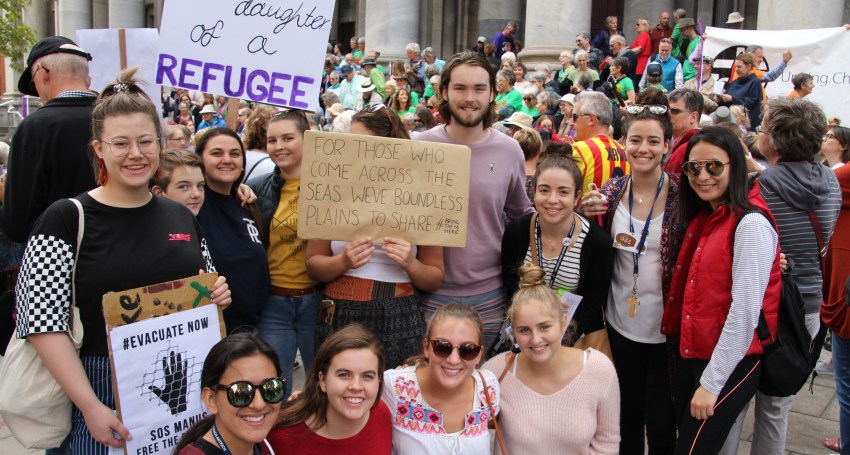Global compact a missed opportunity for Australia
Opinion
The Global Compact on Migration (GCM) might not have been on everyone’s summer reading list. However, it is a history-making document of immense importance in our globalised world, where the movement of people has reached unprecedented proportions. It is touted as the first ever global instrument to coordinate the governance of international migration.

In a world where one billion people are on the move (250 million international migrants and 750 million internal migrants), the Compact aims at safe, orderly and regular migration.
The GCM was signed in December 2018 by 152 countries. Although non-binding, the intent of the document is to commit nation states to a set of universal objectives. These objectives relate to issues such as preventing smuggling and trafficking, providing accurate information to migrants, facilitating fair recruitment in relation to employment, reducing vulnerabilities in the migration process, managing borders well, and investing in skills development.
Advertisement
Sadly, Australia, which had been heavily involved in negotiations on the development of the GCM, was not a signatory to the final document. To the chagrin of other countries, it withdrew from negotiations at the eleventh hour, with Prime Minister Morrison stating the agreement could ‘undermine Australia’s strong border protection laws and practices’.
At an Asian region workshop on the GCM in December, Australia’s tough border control stance and treatment of people seeking asylum and refugees was a source of embarrassment for Australia’s delegates. In the context of the work of other countries, Australia’s hard-line presenting face jars in a world where generosity of spirit and collaborative action is required. Delegates learnt of the work of Fr Jeyaraj in Bangladesh, dealing with Cox’s Bazaar, a refugee camp with one million Rohingyans fleeing persecution in Myanmar. We heard from Mercy Sister Angela Reed advocating at the United Nations in relation to human trafficking. Fr Benny Juliawan traced the path of exploited migrant workers from Indonesia for the plight of stateless people with no rights. These are very human examples of tragedy happening in our time, requiring countries to cooperate to seek better solutions. Carolina Gottardo, Jesuit Refugee Service (JRS) Australia, impressed upon the gathering the centrality of the GCM in beginning to address these issues in a coordinated way.
The JRS workshop in Siem Reap, Cambodia, included representatives from the Vatican, United Nations High Commission for Refugees, the International Office of Migration, and the Cambodian Government. Bringing together delegates from across Asia to discuss more coordinated efforts for addressing the movement of people across the region, its themes were based on Pope Francis’s mantra to welcome, to protect, to promote and to integrate.
The workshop highlighted the scale of the issues in relation to the movement of people. Migration is not a new issue – people have always been on the move – but the numbers are at record levels. Our globalised community is challenged to make sense of what is happening. For refugees, the source of the problem is the treatment of people in their home countries. For work migrants, the issue is fair and just wages and conditions. For stateless people, finding a place where their rights are recognised. For human trafficking, an end to the vested interests in transporting people for nefarious reasons.
Related Story
Drownings prompt deeper despair
The leadership of Mercy Sister Denise Coghlan, JRS Cambodian coordinator, in bringing together such an inspirational group of people provides hope for greater opportunities to act both together and individually to help welcome, protect, promote and integrate the mixed migrant flows of our countries. Workshop delegates committed to an ongoing process of reviewing their own country’s responses to the movement of people.
These are complex issues requiring leadership and cooperation at the highest level in government and civil society. The GCM transports the world to a place where better outcomes are possible. Tragically, Australia is not on that bus. For the sake of the humanity, not to mention our credibility, Australia needs to get on board.
John Haren is president of Justice for Refugees SA. He visited Cambodia with his wife Anne and a group of young Mercy Links women who were also invited by Sr Coghlan to participate in the workshop and contribute their insights and experience working closely with people seeking asylum or who have refugee status in South Australia.










Comments
Show comments Hide comments